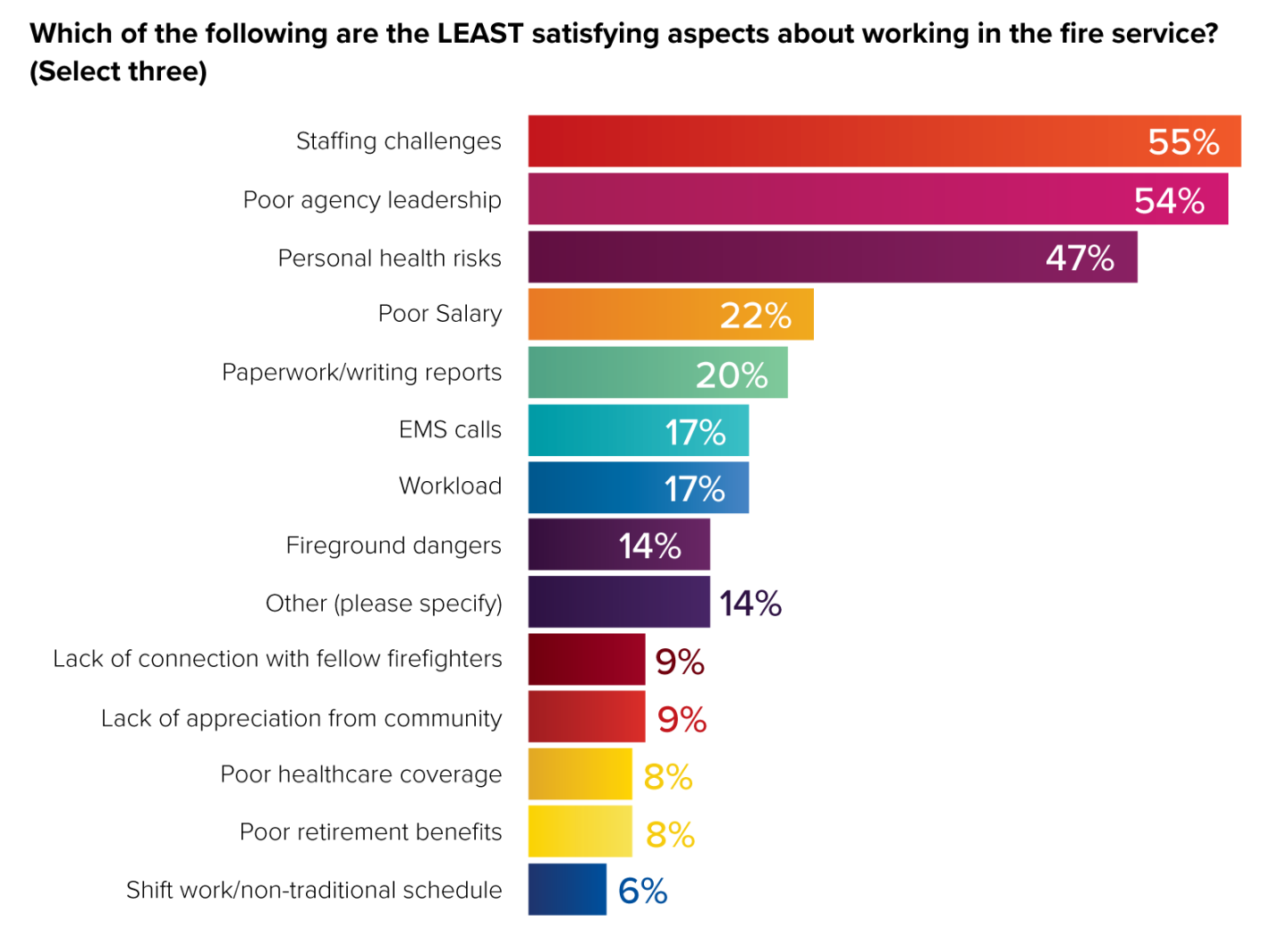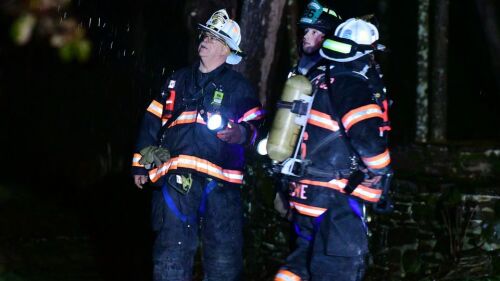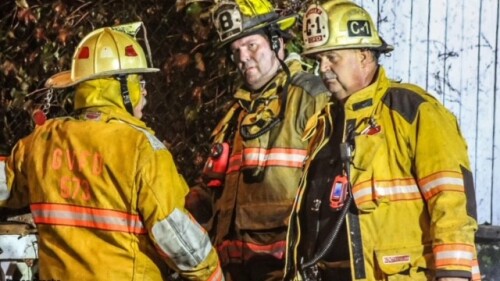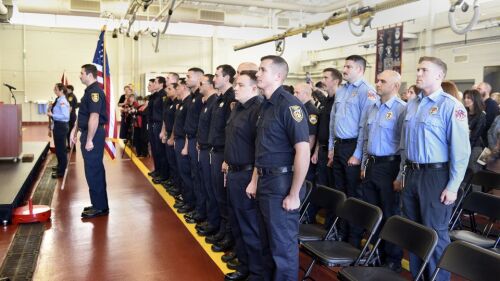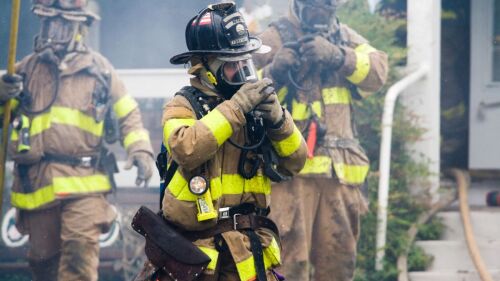By FireRescue1 Staff
While many firefighters happily declare their love of the job as they hurriedly head to a working fire, some parts of the job are clearly less appealing than others — so much so that the fire service is now facing a retention crisis.
In this year’s What Firefighters Want report, survey respondents identified the aspects of the industry they find least satisfying — and potentially looking for other employment. We’ve compiled reader comments related to the top three least satisfying areas of the job – poor leadership, staffing shortages and personal health risks – and added resources to help address these issues.
How is your department tackling these problem areas? Send an email to editor@firerescue1.com and share your organization’s success story.
- “A team needs good leadership to perform.”
- “Complete disconnect from admin to the rigs. There’s no accountability for actions and inconsistent leadership with police and discipline.”
- “Our leadership is failing at every level. Company officers aren’t consistent with upholding standards or training. Agency leadership are actively violating labor policies and standards. Lots of platitudes but little in substance.”
- “Poor leadership leads to all other problems mentioned in the fire service”
- “A great leader will move a department forward in the future. Mediocre leadership will eventually bring down morale, and they will not have the support of their fellow firefighters or the public. Poor leadership now will create poor leadership in the future.”
- “Finding a good leader is extremely hard. Everyone wants the title, but are not always capable of filling the shoes of a leader. There is a lack of guidance, which causes a lack in training, which endangers everyone.”
- “Leadership is not on the same page with their department.”
- “A poor leader will make or break a workplace.”
- “Leadership in place that is not qualified to lead makes most aspects of the job harder.”
- “Administration is disconnected [from] the ever-increasing demands of the community and standing up for their firefighters.”
- “Sometimes we do not have enough firefighters and have to triple-down on duties.”
- “Anything can be done with the correct amount of people for the job. But poor agency leadership expects a short-staffed FD to perform way too much work.”
- “The current staffing model is no longer valid.”
- “The staffing challenge, especially at my current employer, has been going on for my entire time here and has caused a a lot of mandatory OT.”
- “Constant struggle to get enough responders for calls.”
- “Staffing challenges are often caused by poor leadership, meaning more work for already overworked crews. Once those people hit the tipping point, they leave, too, further compounding the problem.”
- “Trying to find people to join the ranks is tough and keeping good people is even tougher.”
- “Difficult to properly provide the community with an adequate response they expect and deserve without appropriate manpower.”
- “We have been understaffed since 1983. From 3,000 to 14,000 calls per year and didn’t add staff. This is unacceptable and unsustainable.”
- “We are doing more with less people. The current shift in people and community dynamics is leading to diminished numbers of personnel entering the fire service.”
- “Knowing that my health can be impacted by the long-term effects is worrisome. Knowing that I’m exposed to carcinogens that could impact my physical health and being exposed to traumatic events that could impact my mental health worries me that over time it could lead to issues down the road.”
- “This job is ‘risk vs. reward,’ and the reward of being able to serve in the fire service comes the risk of higher job-related health issues (higher cancer and cardiovascular death rates).”
- “Health is the most important thing in life. We want to be there for our families.”
- “Still too many of us are succumbing to cancer, heart problems and, increasingly, suicide. The job is a noble one, but in this day and age, why is this still happening?”
- “It’s a risky job, but you won’t know if you are sick until years later.”
- “As a firefighter, we all know the dangers involved in our jobs. Up until the last several years, we were never made aware of all the potential health risks, such as occupational cancer, PFAS and other chemical exposure within our uniforms and gear.”
- “After 35 years of being involved as a firefighter of virtually all ranks, I wonder when they’ll find the cancer, not if. Bullets stop chasing police officers when they retire, but our cancer journey could begin at any time, regardless of service status.”
- “The risks are undeniable. Cancer and heart disease are no jokes, but a reality of the job.”
- “The risk of cancer, heart attack, stroke or behavioral health challenges is a real problem and getting worse.”



